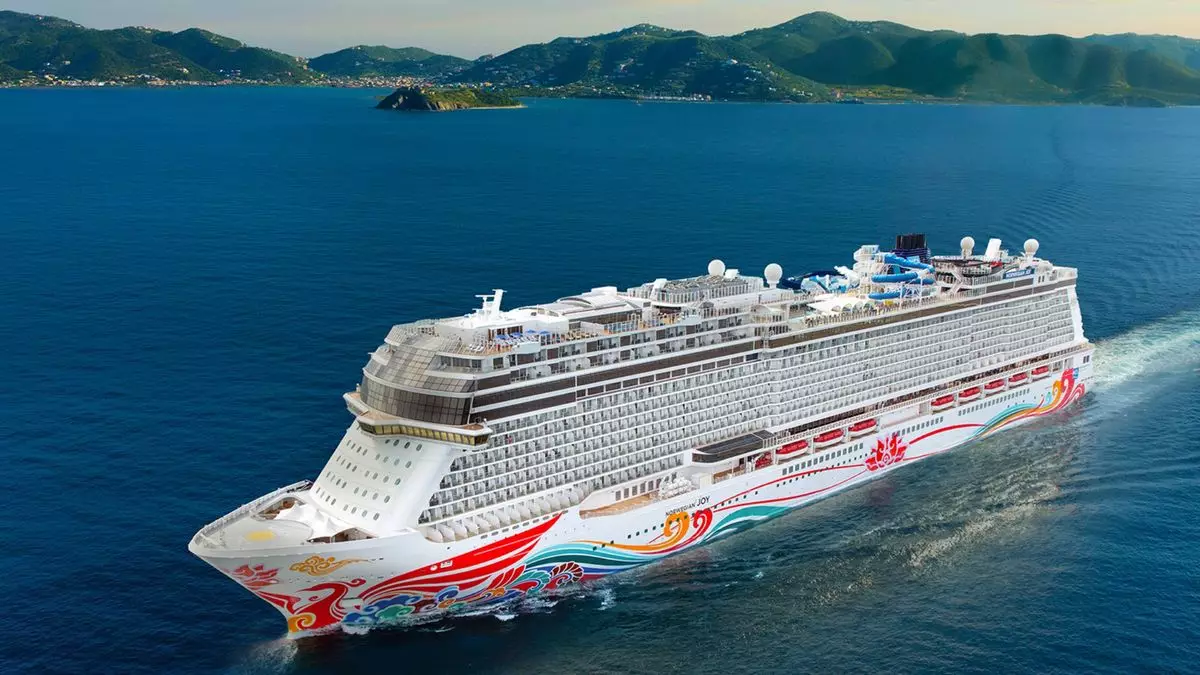As the cruise industry faces an uncertain future, Norwegian Cruise Line Holdings (NCLH) stands at a pivotal crossroads. Recent discussions from U.S. Commerce Secretary Howard Lutnick regarding potential taxation on cruise lines have raised eyebrows and questions within the industry. Although it remains too early to assess the full impact of these governmental threats, NCLH CEO Harry Sommer emphasized that a resolution to ongoing geopolitical conflicts—in particular the disputes involving Israel and Ukraine—could provide significant opportunities for the company by 2026. As various global dynamics unfold, the cruise sector might either benefit or suffer, making it critical for NCLH to navigate these waters adeptly.
Sommer’s insights offer a promising perspective on how diplomacy can revitalize the cruise sector. He noted the importance of peace for humanitarian reasons, but he also recognized the commercial advantages that could arise from stable relations in critical areas. As the company prepares to base a third of its fleet in Northern Europe by the summer of 2026, there looms the possibility of incorporating St. Petersburg—if the situation permits. Should such a development occur, NCLH could significantly capitalize on increased tourism and cruising revenues within that region.
Moreover, the salon of hope that Sommer expresses about peace negotiations speaks volumes of the broader context in which cruise lines operate. Instability in geopolitical landscapes often leads to shunning of regions that are otherwise rich in historical and cultural value, which directly impacts the bookings and revenues of cruise operators like NCLH. The potential reopening of new ports, however, could usher in a fresh wave of travelers eager to explore once again.
During NCLH’s recent Q4 earnings call, Sommer expressed satisfaction regarding the company’s performance over the past year. With record revenues exceeding $9.5 billion—an 11% increase from 2023—NCLH has made commendable strides. The growth in net yield and the record adjusted earnings before interest, taxes, depreciation, and amortization (EBITDA) reveal that they are not only recovering but thriving against the odds. These growth metrics underscore the company’s resilience amid ongoing challenges.
Cruising enthusiasts appear to be responding positively, as evidenced by occupancy rates climbing to 104.9% in 2024—up from 102.9% the previous year. Remarkably, these gains were achieved despite prevailing uncertainties that could have pushed consumers to rethink travel choices. However, amid these strong indicators, Sommer did highlight that bookings for NCLH’s luxury lines—Oceania and Regent—are lagging behind expectations, attributing a slight imbalance between brand performance. He remains optimistic that the NCL brand is holding up well and adjusting within the market.
Taking a long-view strategy seems to be a defining characteristic of NCLH under Sommer’s leadership. The commitment to establishing a substantial presence in Northern Europe reflects the company’s intent to leverage emerging opportunities while remaining adaptive to shifting geopolitical relations. Through proactive measures that prioritize both operational efficiency and customer experience, NCLH aims to position itself as an enduring player in the cruise industry.
Additionally, the refinancing of $1.8 billion in debt signals the company’s prudent financial management in a fluctuating economic landscape. Ensuring liquidity and financial stability is paramount for navigating future uncertainties—whether they are driven by governmental policies or global events.
While the road ahead is fraught with challenges and unknown variables, the strategic positioning of Norwegian Cruise Line Holdings reflects both resilience and adaptability. As international relations evolve, so too will the opportunities for the cruise sector to emerge more robust. NCLH’s focus on addressing external conflicts for both humanitarian and commercial gains highlights the intertwined nature of the geopolitical landscape and the future of the travel industry. With optimistic outlooks and informed strategies, NCLH seems poised to chart a successful course ahead.
- The Rise of Aberlour 18: A Triumph in the World of Scotch - June 24, 2025
- The Departure of Captain Kate McCue: A New Chapter Begins - June 24, 2025
- Transforming Travel: The Promising Future of NDC Adoption in the Aviation Sector - June 24, 2025


Leave a Reply